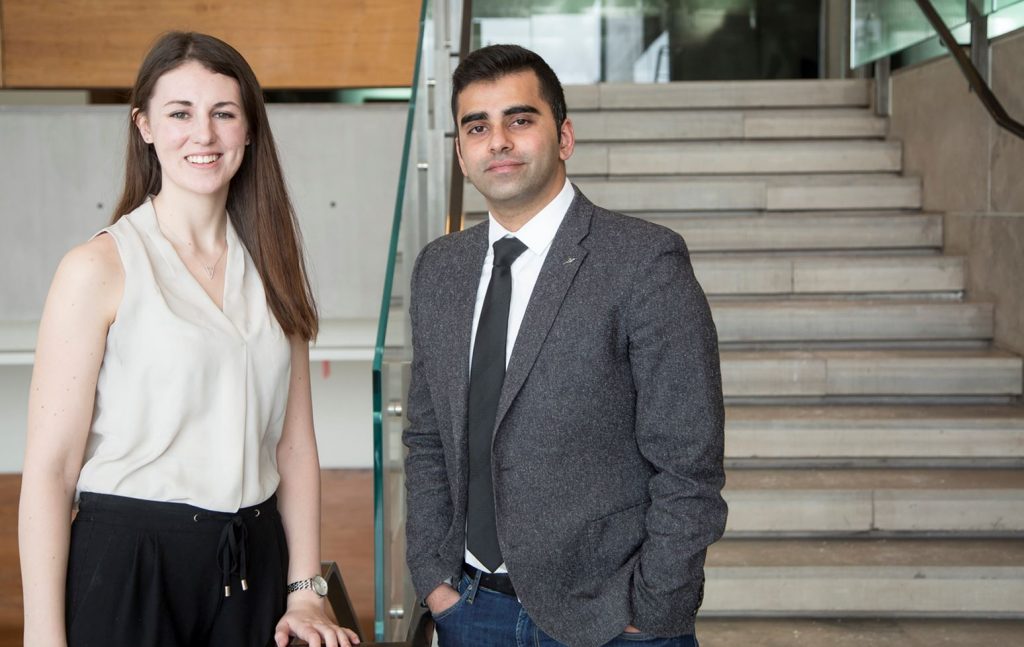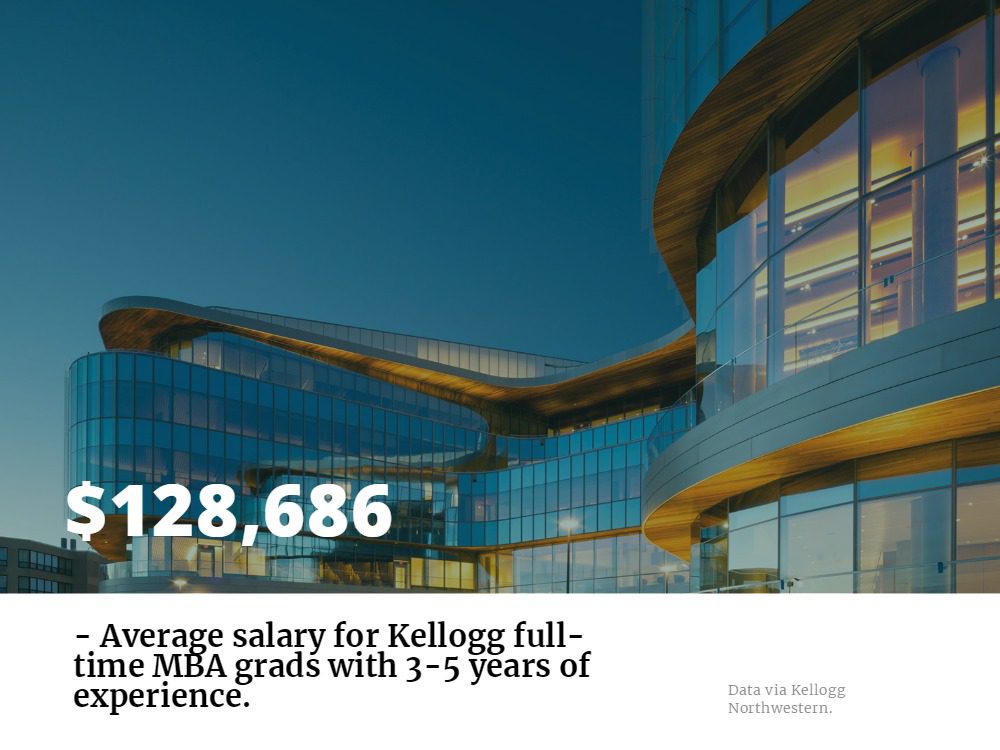Trudeau Comes to Rotman, Trump Tariffs Addressed, and More – Toronto News

Toronto business schools have seen some exciting news this week, and we’ve collected some of the highlights.
DeGroote Professor Talks Tariffs on CTV — CHCH.com
CTV recently interviewed Marvin Ryder, assistant professor at McMaster University’s DeGroote School of Business, regarding U.S. President Donald Trump’s proposal to place tariffs on aluminum and steel. Ryder felt it was possible Canada may not be subject to these tariffs, as Trump seems more focused on Russia and China. Since this interview, Trump has indicated that the tariffs will not apply to Canada and Mexico right away. However, if Trump eventually opts to place tariffs on Canadian products, Ryder suggests the proper course of action is to place similar tariffs on American goods. Ryder has been nominated for the McMaster Student Union Teaching Award 11 times, and published a collection of case studies titled, Marketing Insights: Contemporary Canadian Cases.
You can view Ryder’s full interview here.
Justin Trudeau Visits Rotman — iPolitics
Canada Prime Minister Justin Trudeau’s extensive promotional tour took him to University of Toronto’s Rotman School of Management this week. Trudeau went to Rotman to participate in a discussion on women in business with Catalyst Canada director Tanya van Biesen. Attending this event is consistent with his emphasis on promoting gender equality in Canada.
You can read more about Trudeau’s tour itinerary here.
Schulich Alumn Featured in APEX — apex.aero
APEX published an article on March 6, in which they profiled women in powerful positions in the aviation industry, and sought advice from these women about increasing the presence of females in the field. One of the women profiled was Catherine Brown, who received her MBA from York University’s Schulich School of Business. Brown is now the head of marketing at Bluebook Aviation Systems, a company that distributes in-flight entertainment systems. When asked how gender gaps in the industry will affect future generations, Brown said, “Until unconscious biases about gender change in both men and women, progress toward real equality will be tough, no matter how strong the push is for it in any single industry.”
For the full article on Women in PaxEx, click here.
How Toronto Schools Can Help You Pay for Your MBA

Earning your MBA can be an expensive prospect. In Canada, tuition at the most expensive MBA programs can cost more than $100,000 for full-time and part-time students. This can be difficult for some low-income applicants.
So, what are some Toronto schools doing to help offset the cost of tuition, living, and other expenses to pay for your MBA? Continue reading…
Toronto News: Ivey Students Come to the UN, and More

Let’s visit some of the biggest news coming out of Toronto business schools this week.
François Neville Unpacks Why Some Minority Groups Won’t Seek Business Loans – DeGroote Communications Department
François Neville, Assistant Professor of Strategic Management at the DeGroote School of Business at McMaster University, recently investigated whether certain minority entrepreneurs become discouraged when it comes to entrepreneurial activities such as seeking capital. Neville’s has published a study in the Journal of Management Studies breaks down how years of mistreatment have led to many minority business owners not wanting to begin the process of seeking a loan.
“There is a fairly established body of research offering compelling evidence that minorities are subject to inequality in the workplace and entrepreneurship, despite numerous policy initiatives to curb this,” Neville told the school.
You can read more about Neville and the study here.
Ivey Students Participating in UN Conference – News@Ivey
Two Ivey Business School students were given the special opportunity to take part in a United Nations (UN) conference earlier this month. Emma Hogeterp, HBA/Huron Global Studies ’19; and Sanket Mehta, MBA ’18 , participating in the 2018 Winter Youth Assembly at the United Nations headquarters in New York City from Feb. 14-16.
“The purpose of the conference is to not only discuss ideas, but also how they can be applicable in your country,” said Mehta. “What works in one country might not work in another because every country has a different set of economic indicators, such as life expectancy, income levels, and population.”

Ivey Business School students Emma Hogeterp and Sanket Mehta / Photo via ivey.uwo.ca
Learn more about the Youth Assembly and the Ivey students attending the summit here.
Student Trading Competition Celebrates its 15th Anniversary at the University of Toronto’s Rotman School of Management – Rotman Media Centre
The Rotman School of Management is hosting the 15th annual Rotman International Trading Competition (RITC) from February 22 to 24 in the Rotman School’s BMO Financial Group Finance Research and Trading Lab. Teams from 52 different universities spanning the globe will participate in various activities including electronic and outcry trading cases, seminars with industry practitioners, and social events with their fellow competitors.
“Given the challenge associated with each competition case, participants build models to apply theory, process information to separate the signal from the noise, quantify uncertainty and manage risks. Teams who combine those skills with good decision making do the best over the weekend.” Prof. Tom McCurdy, the Bonham Chair in Finance and academic director of the lab and the competition, said.
You can read more about RITC here.
The Differences Between a Full-Time MBA in New York City and Toronto – MetroMBA
We stack up the best of the best when it comes to NYC and Toronto MBA programs, and where each city stands out. Not surprisingly, Toronto MBAs are more affordable, and the cost of living in the city is infinitely more reasonable, but NYC programs have more prestige and potential financial reward.
Even for those who do not pay extra for room and board, expenses for U.S. residents studying at many NYC business schools will be higher than their neighbors to the north. According to Numbeo, the cost of living in Toronto is 24 percent less than the cost of living in New York City, and rent is nearly 40 percent less.
However, the value of the individual school tends to favor New York City programs over its Toronto counterparts. NYU Stern is currently the 12th overall on the U.S. News & World Report 2018 ranking, with CBS coming even higher at 9th overall. The ranking comparison remains consistent with The Economist as well, with CBS coming in 9th (again), Stern coming in 14th. The highest ranked Canadian program in The Economist ranking—Ivey Business School—came in 59th.
Check out the rest of our comparison here.
The Differences Between a Full-Time MBA in New York City and Toronto

New York and Toronto are the largest cities in the United States and Canada, respectively. Both are major financial and cultural centers, and home to millions of hard-working students, employees, and businesses.
Both metros are also home to a number of quality business schools, each with their own prestigious full-time MBA programs. How do New York and Toronto compare as cities and as destinations for your full-time MBA studies? Let’s take a deeper dive and see.
Location
The most bustling and populous metro in the United States, New York City is is the capital of the business world. More Fortune 500 companies are headquartered here than in any other city. The Big Apple is not only home to Wall Street and the world’s largest financial institutions, but also media, marketing and advertising companies. New York is an enormous city and, unfortunately, expensive to live in, so it may not be for everyone.
When looking at metros with bustling financial sectors and companies, New York is often is the first to come to mind. But how about it neighbor to the north? Toronto is also considered one of the world’s fast-growing financial hubs. An article on the Huffington Post explains how Toronto has risen into the top 10 of the world’s most important financial centers. According to the Global Financial Centres Index from Z/Yen Group and Qatar Financial Centre, Toronto has surpassed Chicago and Boston to become the second-most important financial center in North America, and eighth in the world.
According to one unidentified New York banker quoted in the Global Financial Centres Index survey, “Toronto seems to get stronger and stronger. A number of our rivals have opened up subsidiaries there.”
New York City Full-Time MBA Programs
- Columbia Business School
- Stern School of Business – New York University
- Gabelli School of Business – Fordham University
- Zicklin School of Business – Baruch College
What stands out about these programs?
A Columbia MBA opens up countless career options and is sure to pay off in the long run. The median starting salaries for Columbia MBAs is $125,000, with 34 percent of full-time MBA of graduates being employed in the financial services industry. Students may assemble their own elective tracks, but the school also provides recommend course tracks for students interested in careers in entrepreneurship, healthcare, marketing, media, real estate, value investing, and social enterprise.
Meanwhile, Stern’s MBA curriculum gives students tons of flexibility, and allows degree seekers to choose one or two MBA specializations, NYU allows up to three specializations from 20 plus options. Stern makes sure that all students enrolled in the full-time program are ready for business school: Stern hosts a mandatory two-week orientation program in August called “Launch” as well as a special “Summer Start” program that allows students the school believes may need additional preparation to earn up to six credits before starting courses with their classmates in September.
Both Gabelli and Zicklin’s full-time programs feature cohort-based structures. Gabelli’s program features a New York immersion experience where, over the course of five days, students are exposed to a number of company visits with corporations like Deutsche Bank, Money.net, and Hewlett Packard. As an alternative to completing a major, Zicklin students may pursue a joint JD/MBA in conjunction with Brooklyn Law School or New York Law School.
Toronto’s Full-Time MBA Programs
- DeGroote School of Business – McMaster University
- Ivey Business School – Western University Canada
- Schulich School of Business – York University
- Ted Rogers School of Management – Ryerson University
What stands out about these programs?
DeGroote’s full-time MBA is a 16-month program ideal for candidates who are early in their career and want to gain advanced business knowledge in order to have more job opportunities. McMaster is one of only four Canadian universities ranked among the top 100 in the world, including by premiere publications like The Financial Times.
Ivey’s full-time program stands out because it can be completed in one year. During the year, students will learn business essentials from Canada’s only case-based MBA program. Students are able to experience real-world business scenarios through more than 300 cases a year, providing them of hands-on experience for how to best handle a variety of business scenarios.
The Sculich School of Business full-time MBA program is non-traditional due to its amorphous teaching format: The organization, pedagogy, and style of classes is determined solely by the most effective way to teach a particular course. This means that while some course instructors make extensive use of case studies, others do not. Other approaches to delivering courses include in-class presentations, role-playing exercises and visiting speakers and business leaders.
Schulich’s program, however, is on the more expensive side when it comes to Toronto metro business schools. The current full cost of the program in 2018-19 is $77,900 CAD for Canada residents, and $99,400 for international residents. While the tuition costs are actually higher than the likes of NYU Stern or the Columbia Business School full-time programs, because of the cost of living in New York City, the price is actually negligible—especially for Canadian residents.
Schulich/NYU/Columbia Full-Time MBA Costs
| York/Schulich | NYU/Stern | Columbia Business School |
|---|---|---|
| $57,000 (Canada Residents) | $69,086 USD | $71,544 USD |
| $77,900 (Full Cost, Canada Resident) | $110,562 (Full Cost, U.S. Resident) | $107,749 (Full Cost, U.S. Resident) |
Ryerson’s full-time MBA stands out thanks to its Management of Technology and Innovation (MBA-MTI) program, which provides graduates with skills in problem-solving, critical thinking, communication and collaboration. Despite it’s technical sounding name, the MBA-MTO is not a technical program. Instead students enrolled in this track graduate with the skills needed to manage within companies that are focused on tech and innovation.
Breaking Down the Numbers
Even for those who do not pay extra for room and board, expenses for U.S. residents studying at many NYC business schools will be higher than their neighbors to the north. According to Numbeo, the cost of living in Toronto is 24 percent less than the cost of living in New York City, and rent is nearly 40 percent less.
However, the value of the individual school tends to favor New York City programs over its Toronto counterparts. NYU Stern is currently the 12th overall on the U.S. News & World Report 2018 ranking, with CBS coming even higher at 9th overall. The ranking comparison remains consistent with The Economist as well, with CBS coming in 9th (again), Stern coming in 14th. The highest ranked Canadian program in The Economist ranking—Ivey Business School—came in 59th.
NYC/Toronto MBA Rankings
| School | Financial Times Ranking (2018) | The Economist Ranking (2017) |
|---|---|---|
| NYU Stern | 23 | 14 |
| Columbia Business School | 7 | 9 |
| Ivey | 90 | 59 |
| Schulich | NR | 69 |
The higher rankings and costs tend to, unsurprisingly, have a high correlation with financial output. MBA graduates from higher-ranked NYC metro schools tend to do better in terms of salary and bonuses. As previously mentioned, CBS Class of 2017 MBA grads pulled in a median annually salary of $125,000. Class of 2017 Schulich grads, in comparison, made an average median salary of around $90,000 USD.
For more information on the best full-time programs, check out our New York City and Toronto metro pages.
Toronto News: DeGroote Launches New Fellowship, Rotman Makes New Hire, and More

Let’s visit some of the biggest news coming out of Toronto business schools this week.
EMBA Physicians Invited to Enroll in HLA Fellowship Program – DeGroote Communications Department
According to a press release from the DeGroote School of Business at McMaster University, the Michael G. DeGroote Health Leadership Academy (HLA) is launching a new fellowship program for physicians who enroll in the Executive MBA in Digital Transformation (EMBA) at the DeGroote School of Business. Called the HLA Physician Fellowship Program, five fellows will be selected for the inaugural year of the program, which starts in September 2018.
The EMBA in Digital Transformation is a 13-month program that allows candidates to work while pursuing their degree. It features an evolving interdisciplinary curriculum includes customized, integrated cases developed around new and emerging trends in business and technology.
“The HLA strives to attain a transformative impact on global healthcare by nurturing a community of future leaders,” Del Harnish, Co-Director of the HLA, said. “This fellowship program helps develop these leaders by providing a broad perspective of the intersections of health and business knowledge.”
You can read more about the new fellowship here.
Rotman School Strengthens Business Design and Innovation with New Appointment – Rotman Media Centre
The Rotman School of Management announced an exciting new faculty hire via their Media Centre: Angèle Beausoleil is joining the school’s faculty as an assistant professor of Business Design and Innovation. In addition to developing and delivering new courses, she will be collaborating with Rotman DesignWorks, the school’s Business Design Centre on industry projects to help advance innovation practices at the school.
You can read more about Professor Beausoleil here.
Schulich School of Business Wins 2018 MBA Games – Schulich Media Centre
Last month, a team of MBAs from the Schulich School of Business at York University bested teams from 16 other Canadian graduate business schools to win the 2018 MBA Games. The victory was Schulich’s seventh MBA Games win in 16 years.
“This was our year to win the MBA Games,” said Catherine Sim, Team Captain, who expects to graduate with a Schulich MBA degree later this year. “It feels great to bring the Queen’s Cup back to where it belongs.”
You can read more about the team’s triumph here.
MBA on the Lake: Higher Learning in Chicago & Toronto

To have some type of natural source to balance out the cacophony of city life is crucial to a healthy mind. Not every major city is a concrete jungle, completely broken off from its former natural self or its surroundings. It might surprise city slickers the amount of wilderness opportunities that exist just outside their doorstep.
Take Toronto, for instance. Situated on the shoulder of Lake Ontario, Toronto is surrounded by plateaus, deep forest, ravines, and three rivers. While other Canadian cities may beg to differ, Toronto is the financial and cultural capital of the country. It has long been a hub for migration since the days of the Huron and Iroquois and houses the five largest financial institutions in Canada.
As the heart of American transportation and distribution, Chicago’s metropolitan reputation belies its abundance of natural splendors. Located at the toe of Lake Michigan, the Second City plays host to a wide array of green spaces—arboretums, nature centers, conservatories, and botanical gardens—as well as lakeside walking and biking paths.
Both Chicago and Toronto are world centers for higher education and research, yet offer resplendent surroundings to maintain a balanced state of mind. Both offer much more affordable living situations than New York or San Francisco and are highly underrated for their cultural appeal. Whichever you choose, you will find established, reliable education in your pursuit for the proper MBA. Last month, we analyzed the best part-time offerings in both metros, but let’s take a closer look at the full-time MBA options.
Our Favorite Toronto Full-Time MBA Programs
York University – Schulich School of Business
The Schulich School of Business at York University offers 18 MBA specializations. In addition to full-time programs, the school also accommodate working students with part-time programs that offer both day and evening courses. Students are also able to switch between full and part-time status during their tenure to suit their needs. In 2016, 89 percent of students were hired within three months of graduation by 140 companies. Graduates were employed with an average salary of $91,860 USD and an average signing bonus of $12,050.
McMaster University – DeGroote School of Business
DeGroote School of Business at McMaster University offers full-time and part-time options, as well as a three-year paid work term co-op schedule. Full-time applicants are required to have one year of full-time continuous managerial, professional, or technical work experience (this is where the Co-op plan can come in handy—work as you go). The school offers seven specializations and International study. About 94 percent of recent graduates were employed within six months (over the last two years) with an average starting salary of $71,930 USD.
Western University Canada – Ivey Business School
The Western University Canada Ivey Business School is technically located just outside of Toronto, in London, Ontario. The school offers a full-time program that gives students an opportunity to work with over 200 recruiters, with about 66 percent of graduates finding jobs in Canada. In 2017, 91 percent of the graduating class received a job offer by September 1. Average starting salaries were typically around $90,000 USD with an average signing bonus of $15,000. Other compensations averaged at $9,875.
CHECK THIS OUT: Kings of the North: Should You Get a Part-Time MBA in Chicago or Toronto?
University of Toronto – Rotman School of Management
Students in the Rotman School of Management full-time MBA program are offered 16 major options and more than 90 electives to allow for a very customizable experience. Between 2016 and 2017, 85 percent of full-time Rotman MBA students were employed within six months of graduation and 80 percent landed jobs just within three months. Average starting salaries were $85,000 USD with an average signing bonus of $13,500.
Ryerson University – Ted Rogers School of Management
MBA applicants at the Ted Rogers School of Management at Ryerson University are given two full-time options: the Global MBA or an MBA in the Management of Technology and Innovation (MBA-MTI). Their Global MBA program strives to help their graduates “understand the global context of various industries and have the knowledge necessary to drive innovation and deliver as capable and confident leaders.” The MBA-MTI helps students “gain the skills needed to manage within companies that are focused on tech and innovation.” Last year, about 80.3 percent of graduates found employment within three months of graduation and earned an average starting salary of $89,250 USD.
Our Favorite Chicago Full-Time MBA Programs
Booth School of Business – University of Chicago
The University of Chicago Booth School of Business offers what the school calls the “world’s most flexible MBA program,” and is regarded by U.S. News & World Report as the third best full-time offering in the U.S. The curriculum consists of 20 classes—nine mandatory and 11 courses tailored to personal interest—plus a Leadership Effectiveness and Development (LEAD) program. As of September 2017, an absurd 97.1 percent of graduates reported having received full-time job offers within three months, with 95.3 percent accepted offers in that time. Average starting salaries were an impressive $125,000 with an average starting bonus of $25,000.
Kellogg School of Management – Northwestern University
The Kellogg School of Management at Northwestern University offers two full-time MBA variations, either to be completed in one or two years. The school’s 2017 employment report, which can be downloaded here, detailed that 94.1 percent of graduates received job offers within three months and 90.8 percent of those grads accepted job offers. The average starting salaries for graduates with three-to-five years of work experience was an unsurprisingly lavish $128,686.

Like the Booth School of Business, when comparing Chicago and Toronto programs, financial gain is clearly an advantage for those who elect to study in the U.S. However, perhaps unsurprisingly, schools like Kellogg come with a steeper tuition cost. Applicants for the One Year full-time program should expect to pay more than $133,000 for the entire program, while those in the Rotman School of Management will have to pay around $75,000 USD.
Kellstadt Graduate School of Business – DePaul University
At the DePaul University Kellstadt Graduate School of Business, students can obtain a full-time MBA with the availability of 100 courses in 20 MBA concentrations and 17 specialized Master degrees. In 2016, within six months 89 percent of surveyed graduates were employed, 14 percent being entrepreneurial, contract or freelance. Average starting salaries were about $82,200.
Liautaud Graduate School of Business – University of Illinois at Chicago
The Liautaud Graduate School of Business at the University of Illinois at Chicago full-time MBA is a 13.5 course program, with six courses designed to deepened functional business knowledge, while the remaining 7.5 are geared towards allowing students to customize their experience towards their personal career interests. They provide twelve concentrations in their MBA program.
Mendoza College of Business – Notre Dame
The Mendoza College of Business at Notre Dame University offers two traditional full-time MBA options, which can be taken in two years, or just one in a more accelerated format. According to employment statistics recently released by the business school, about 88 percent of Two-Year full-time students were given a job offer within three months of graduating, with about 86 percent of those graduates accepting the offers. Like many of the major business schools located in the Chicago metro (although, yes, Notre Dame is technically in Indiana), full-time MBA grads enjoyed a lush base salary upon employment, with an average salary of $105,000 for the Class of 2017. Median signing bonuses also ranked in the higher end of the schools on this list, coming in at around $20,000.
The Mendoza College of Business is one of the many business schools in the U.S. that has seen a dramatic shift in terms of graduates moving into the tech industry. Three industries in particular dominated when it came to employing Mendoza MBA grads: tech, financial services, and consulting. However, a slim majority (24.7 percent) joined the tech industry, enjoying salaries slightly higher than the Mendoza average, coming in at $110,000.
Quinlan School of Business – Loyola University
The Quinlan School of Business offers full-time MBA offering is one of the most affordable high-quality Chicago options out there, with the most recent full-cost of the program coming in at $73,422; comparable to many of the aforementioned Toronto programs. And unlike many of the programs on this list, Quinlan isn’t located in some quaint suburb. Rather, the school is centered right on the historic Magnificent Mile in Chicago, fully integrated into the vibrant city.
